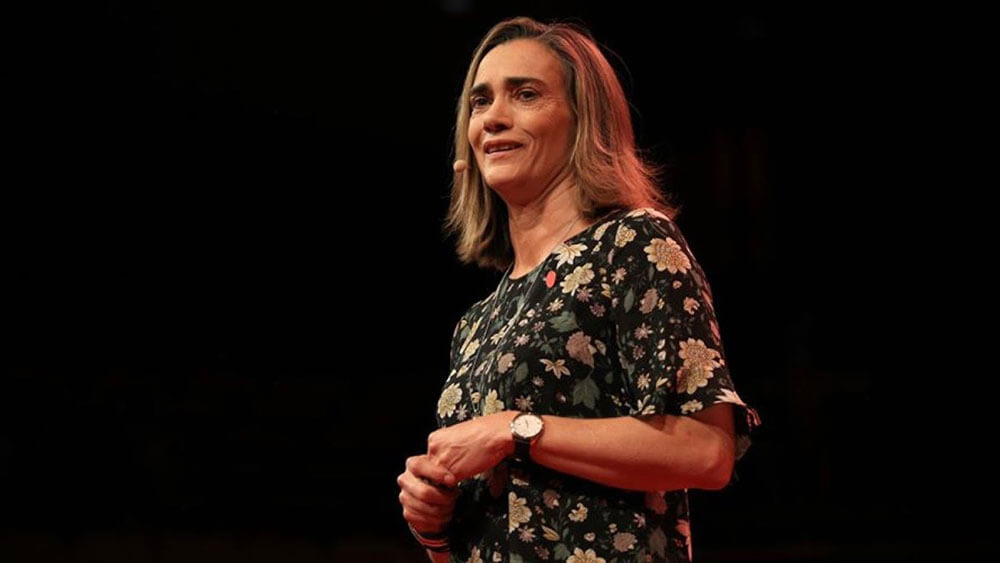
Lucy Hone, director of the New Zealand Institute of Wellbeing & Resilience, offered strategies to help people be more resilient in a TEDx Talk.
In Convene’s latest COVID-19 Recovery Dashboard survey, nearly one-quarter of planners — and 30 percent of suppliers — respondents identified soft skills, including cultivating resilience in times of crisis as an area worth pursuing for future success. We can all take a lesson in that from a TEDx Talk.
“Adversity doesn’t discriminate,” Lucy Hone, director of the New Zealand Institute of Wellbeing & Resilience, told the audience in a talk during TEDx Christchurch last September. “If you are alive,” Hone said, “you will deal with some tough times.” Her message is one that has only grown more resonant, in the midst of pandemic that has spread to every continent except Antarctica, and her expertise is more relevant than ever.
Hone, who lives in Christchurch, earned a masters in applied positive psychology from the University of Pennsylvania and a Ph.D. in wellbeing science/public health from Auckland University of Technology University. But her most valuable — and painful — insights came as a result of her own personal tragedy.
In 2014, Hone’s life was turned upside down, when her 12-year-old daughter, Abi, was killed in a car accident. “Instead of being the resilience expert,” Hone said, “suddenly, I’m the grieving mother,” whose world had been smashed to smithereens.
The well-intentioned advice and information she got from others at the time only made her feel worse, Hone said. Losing a child is widely acknowledged as the hardest of losses to bear, she said. “I needed a journey through all that anguish, pain, and longing.” So, she decided to turn to her own work and conduct what she described as a self-experiment. “I’d done the research, I had the tools, I wanted to know how useful they would be to me now in the face of such an enormous mountain to climb.”
Hone learned, she said, “that you can rise up from adversity, that there are strategies that work, that it is utterly possible to make yourself think and act in certain ways that help you navigate tough times.” Here are three of Hone’s insights to shift your mindset that saved her in her darkest days, she said. “They they’re pretty readily available to us all,” Hone said. “ Anyone can learn them.”
- Resilient people get that shit happens.
They know that suffering is part of every human life, Hone said, and knowing that stops resilient people from feeling discriminated against. “We seem to live in an age where we’re entitled to a perfect life, where shiny, happy photos on Instagram are the norm, when actually, the very opposite is true.” In the time of coronavirus, it helps to know that social-media photos of people doing yoga on the beach and baking perfect loaves of sourdough bread don’t represent the whole picture. - Resilient people are good at choosing where they put their attention.
“They typically manage to focus on the things that they can change, and somehow accept the things that they can’t,” Hone said. Our evolutionary history has hardwired us to pay attention to the negative in order to protect us from danger, she said. We now live in an era where we are bombarded by threats all day long, “and our poor brains treat every single one of those threats as though they were a tiger,” she said. “Our stress response is permanently dialed up.” Resilient people don’t diminish the negative, but they also have figured out how to tune in the good, she said. A 2005 study by Martin Seligman, at the University of Pennsylvania, found that people who make a daily gratitude list, writing down good things that happened to them during that day, experience higher levels of gratitude, higher levels of happiness, and less depression over the course of six months, she said. Paying attention to the positive “is a vital, learnable skill for resilience.” - Resilient people ask themselves, “Is what I’m doing helping or harming me?”
Of all the strategies that Hone has written about, this one has gotten the most feedback from people saying that it works, she said. Whether you’re ruminating over the past, or scrolling through social media, “ask yourself whether what you’re doing — the way you’re thinking, the way you’re acting — is helping or harming you,” Hone said. “That puts you back in the driver’s seat. It gives you some control over your decision-making.”
“I won’t pretend,” Hone said, “that thinking this way is easy. And it doesn’t remove all the pain. But if I’ve learned anything over the last five years, it is that thinking this way really does help.”
